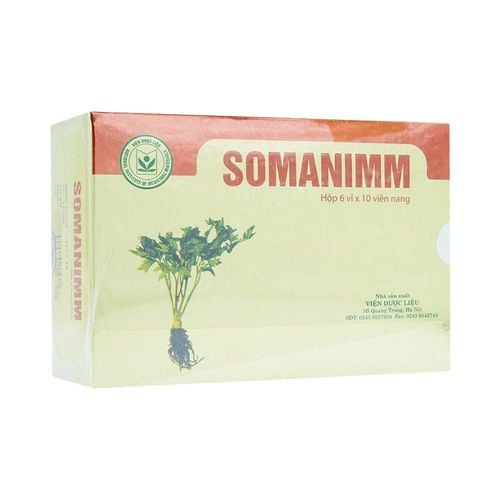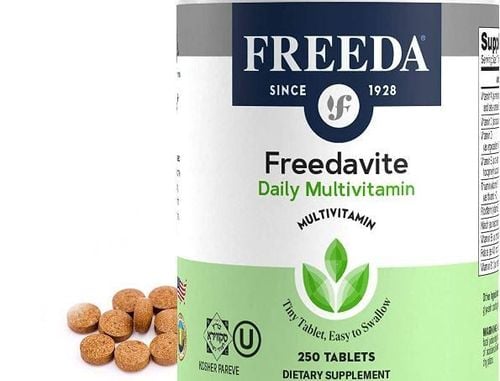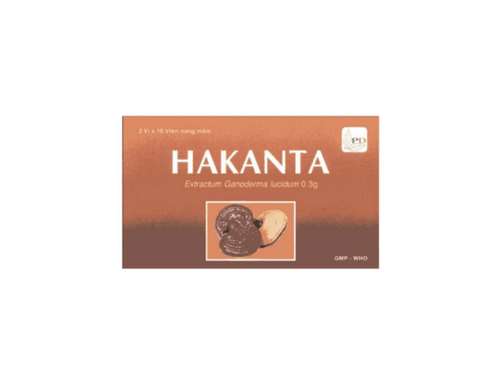This is an automatically translated article.
If you want to strengthen your immune system, you can take some dietary and lifestyle measures below to help strengthen your body's natural resistance and help it fight harmful pathogens or disease-causing organisms.
1. Get enough sleep
Sleep and the body's immune status are closely related. In fact, insufficient or poor quality sleep can make the body more susceptible to disease.
In a study conducted on 164 healthy adults, those who slept less than 6 hours per night were more likely to catch a cold than those who slept 6 or more hours per night.
Adequate rest can strengthen the body's natural resistance. In addition, getting enough sleep during illness allows the body's immune system to better fight disease.
Adults should sleep 7 or more hours per night, while adolescents need 8 to 10 hours and younger children and infants up to 14 hours.
If you have trouble sleeping, try measures such as not using electronic devices for an hour before bedtime, as the blue light emitted by phones, TVs and computers can disrupt the rhythm. biology or the body's natural sleep cycle.
Other sleep hygiene tips include: sleeping in a completely dark room or using a sleep mask, going to bed at the same time every night, and exercising regularly.

Nên ngủ đủ giấc và đúng giờ để tăng sức đề kháng tự nhiên của cơ thể
2. Eat a lot of fiber
High-fiber foods like fruits, vegetables, nuts, seeds and legumes are rich in nutrients and antioxidants that can help the body fight harmful pathogens.
The antioxidants in these foods help reduce inflammation by fighting unstable compounds called free radicals, which can cause inflammation when they build up in the body in high concentrations.
Chronic inflammation is linked to many health conditions, including heart disease, Alzheimer's, and some cancers.
Meanwhile, the fiber in plant foods feeds the gut microbiome or healthy bacteria in the gut. A healthy gut microbiome can improve immunity and help prevent harmful pathogens from entering the body through the digestive tract.
Furthermore, fruits and vegetables are rich in nutrients like vitamin C that reduce the duration of the common cold.
3. Eat lots of healthy fats
Healthy fats, like olive oil and salmon, can help reduce inflammation when the body's immune response to pathogens.
Although low-level inflammation is a normal response to stress or injury, chronic inflammation can suppress the body's immune system.
Olive oil is highly anti-inflammatory and reduces the risk of chronic diseases like heart disease and type 2 diabetes. In addition, the anti-inflammatory properties of this oil can help the body fight disease-causing bacteria and viruses.
Omega 3 fatty acids found in salmon and chia seeds also have anti-inflammatory properties.

Cá hồi là nguồn cung cấp chất béo lành mạnh làm tăng khả năng chống viêm của cơ thể
4. Eat a lot of fermented foods or take probiotic supplements
Fermented foods are rich in beneficial bacteria called probiotics, which reside in your digestive tract.
Foods in this group include yogurt, sauerkraut, kimchi, kefir, and fermented soybeans (natto).
Studies show that a strong network of gut bacteria can help the body's immune cells distinguish between normal, healthy cells and harmful invaders.
In a 3-month study in 126 children, those who drank 2.4 ounces (70 mL) of fermented milk daily had 20% fewer infectious diseases than children who did not.
If you don't regularly eat fermented foods, you can take a probiotic supplement with many products on the market.
In a 28-day study in 152 people with rhinovirus infections, those given a supplement with Bifidobacterium animalis had a stronger immune response and lower viral concentrations in nasal mucus compared to the group that did not receive the supplement. .
5. Limit your intake of added sugar
New research shows that adding sugar and refined carbs can contribute to overweight and obesity. Obesity can also increase the risk of the disease.
Observational study in about 1,000 people, people with obesity who received the flu vaccine were twice as likely to get the flu as those who were not obese and also vaccinated.
Therefore, you need to limit your sugar intake to reduce inflammation and support weight loss, which leads to a reduced risk of chronic diseases such as type 2 diabetes and cardiovascular diseases.

Hạn chế bổ sung đường để tránh nguy cơ thừa cân và béo phì
In addition, obesity, type 2 diabetes and heart disease can all weaken the body's immune system, so limiting added sugar is an important part of an immune-boosting diet.
You should try to limit sugar intake to less than 5% of daily calories, which is equivalent to about 2 tablespoons (25 grams) of sugar for a person on a diet of about 2,000 calories/day.
6. Exercise
Although prolonged intense exercise can suppress the immune system, moderate exercise can help increase the strength of the immune system.
Studies show that even a moderate session of exercise can enhance the effectiveness of vaccines in people with compromised immune systems.
In addition, regular and moderate exercise can reduce inflammation and help immune cells regenerate regularly.
Examples of moderate exercise include brisk walking, cycling, jogging, swimming and hiking for at least 150 minutes per week.
7. Avoid dehydration
Hydration doesn't necessarily protect you from germs and viruses, but preventing dehydration is important for your overall health.
Dehydration can cause headaches and interfere with physical performance, concentration, mood, digestion, and heart and kidney function. These complications can increase the body's chances of getting sick.
To prevent dehydration, you should drink enough fluids daily so that your urine is light yellow. Filtered water is recommended over other types of water as it does not contain calories, additives and sugar.
While teas and juices also help stay hydrated, it's best to limit their use due to their high sugar content.

Bổ sung đủ lượng nước mỗi ngày để nước tiểu có màu vàng nhạt
8. Stress management
Reducing stress and anxiety is an important key to immune health. Prolonged stress promotes inflammation, as well as imbalances in immune cell function.
In particular, prolonged psychological stress can suppress the immune response in children.
Activities that can help you manage stress include meditation, exercise, journaling, yoga. In addition, if it is difficult to manage stress, you should see a counselor or psychologist directly for support.
9. Supplementing functional foods properly
Although vitamins and supplements can help fill nutrient gaps if your diet isn't getting enough, the best way to get the nutrients you need is The key is to get them from food.
Your body absorbs and uses vitamins and nutrients better when they come from food. Therefore, if you intend to use any functional foods, you should consult your doctor before using.
Customers can directly go to Vinmec Health system nationwide to visit or contact the hotline here for support.
Articles refer to the source: healthline.com













